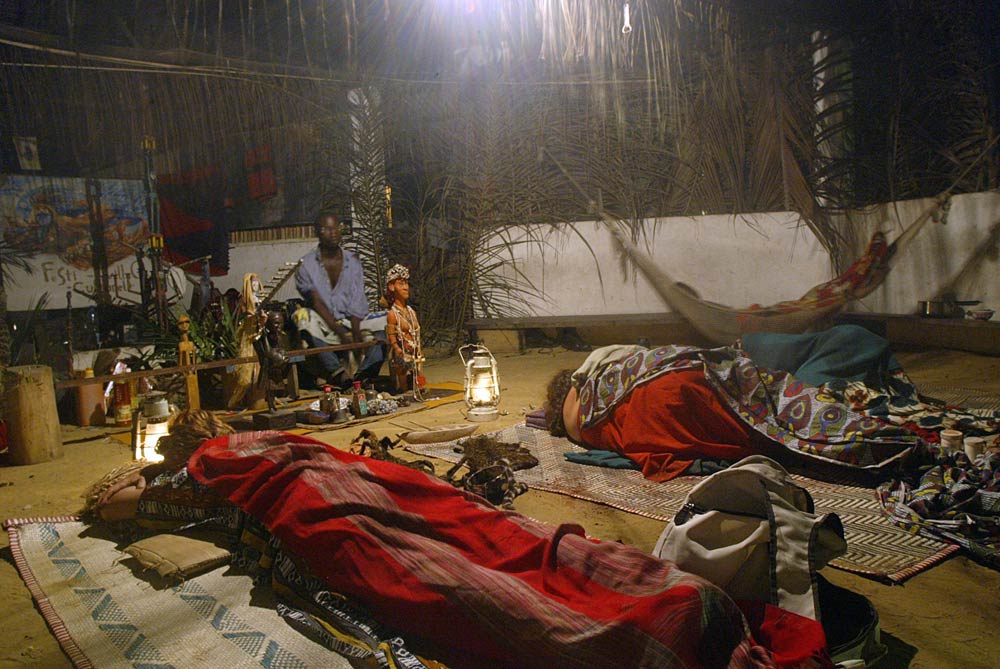Some in Gabon believe the bitter iboga root comes from the Tree of Knowledge in the Garden of Eden. Others elsewhere have derided it as a dangerous drug.
Today a growing number of Westerners are travelling to the central African country to sample it themselves as part of an ancestral rite called Bwiti, one of Gabon’s official religions.
Among them is Remy Causse, who at 45 made the long journey from France in hopes that the ritual would help him to “see more clearly”.
Bwiti combines worship of ancient forest spirits with elements of Christianity. It is practiced regularly and involves ingesting the powerful psychoactive root, iboga, which has effects similar to LSD, mescaline or amphetamines.
“Iboga cleans the insides,” says Tatayo, a French-Gabonese spiritual guide who receives many of the Western “bandzi”, or candidates for initiation.
“The bandzi empties himself of everything bad that is buried inside before coming face to face with himself.”

But the deaths, deemed accidental, of two Western initiates saw the practice come under sharp scrutiny, notably in former colonial power France where health officials warned it was “hallucinogenic and highly toxic”.
A report by the Mission of Vigilance against Sectarian Abuses (Miviludes) from 2007 called Bwiti a form of cult ritual that is dangerous “both physically and mentally”.
Tatayo himself concedes that “you must be closely watched when you ingest iboga”.
Benefits and dangers
But Bwiti shamans like Tatayo believe that when they eat iboga, they are granted the power to see the future, heal the sick and speak with the dead.
Users say it helps them to break away from negative habits, and an extract from the root is now being used in Western medicine to treat drug addicts and alcoholics.
Like many foreigners before him, Causse turned to “Tatayo”, who is originally from southwest France, at his beachside concession next to the president’s quarters in Gabon’s capital Libreville.
Under the light of the torches, initiates, their faces painted white, intone traditional chants over the music of the Ngombi, a form of sacred harp, or the Mogongo, an instrument made of a chord strung across an arc that the musician strums with a pulsating rhythm.
Causse starts to eat the iboga, crushed into powder, which Tatayo feeds him by the spoonful until he is overcome by visions amid the deafening noise of singing and dancing by “escorts”. Lying on a mat, he seems to be sleeping as his spirit “roams”.
Ingested in high doses, iboga causes anxiety, extreme apprehension and hallucinations, which are enhanced by the darkness and music. Sometimes Causse rouses and begins to vomit.
The visions last all night, and it’s not until the early hours of the morning that Causse wakes up. Still groggy from the experience, he is unable to walk for several hours.
Despite being “a bit scared”, he said he was happy two days after shaking off the lethargy caused by the iboga root. After this he will bear the name “Moukoukou”, which means “spirits”.
“The ritual has given me an understanding that cannot be explained in words; it has answered many of my questions,” he says.
Few people in Gabon doubt the effectiveness of the iboga root, which is considered an important part of the country’s national heritage. The country’s first president was an initiate.
Outside the country, a dozen or so deaths have been reported in the United States and Europe among people who experimented with iboga, though the exact circumstances have not been clarified. Medical reports said the victims’ nervous systems and hearts appear to have been affected and the deaths generally occurred more than 20 hours after taking the root.
In Gabon, neither the French embassy nor the Gabonese health ministry would comment on the bwiti ritual, given that it involves a recognised religious practice and use of a product authorised in the country.
Yet despite the dangers and the high price that Westerners must pay for their new experiences – Causse paid $3 800 for his three-week journey – more and more are coming.
Tatayo says that he now receives around 20 to 25 new foreign initiates – mainly Europeans – a year.
Tiphaine Saint-Criq for AFP
